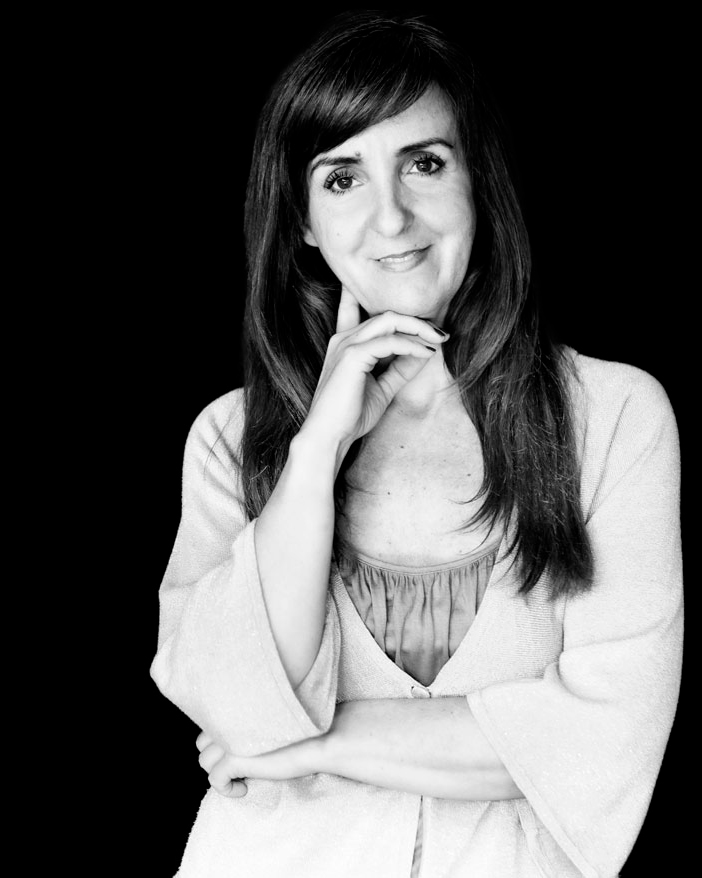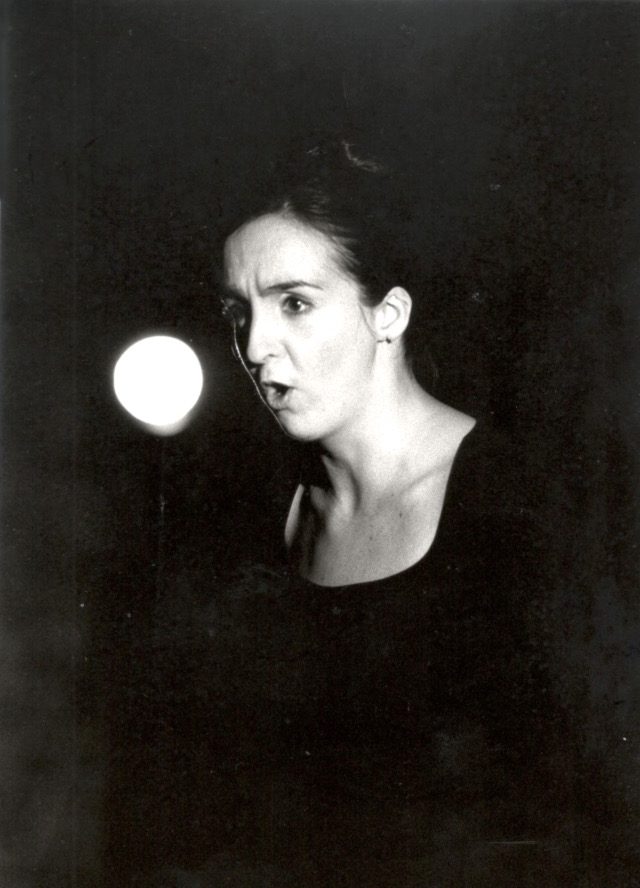I am Gabriela Labanda
And this is my PathSinger, singing pedagogue, singing voice therapist and coach.
The Beginning
As member of a family who loves music, especially singing, it was clear that I would fall in love with the singing voice. Since I was a child I participated in choirs and studied piano at the Institute of Music of the University of my hometown, Tucumán, Argentina.
At the age of 15 I joined the University Choir of the University of Tucumán. Fascinated by the vocal education provided by its director, Andrés Aciar, and the eight vocal coaches, I knew then that I wanted more of that in my life -so I started taking lyric singing lessons with the soprano Laura Varela.
Unsure if I had the necessary skills to become a professional singer, I then decided to study architecture, something I enjoyed a lot as well..
From Buenos Aires to Germany
After a few years of approaching, architecture and singing with pronounced discipline, I put myself to the test. I competed for scholarships in Buenos Aires. Winning not one but three scholarships at the same time gave me the idea that I could devote myself singing professionally, and maybe even… maybe… make a living from it.
At this point, I gave up architecture and moved to Buenos Aires. The scholarships I received from the Fundación Antorchas and the Fundación Leonor Hirsch, allowed me to perfect myself as a singer of opera, oratorio and chamber music over the next three years.
After completing my studies, I was hired to be part of the Soloist Ensemble of the Deutsche Oper am Rhein, in Düsseldorf, Germany.
In 1999, I crossed the Atlantic thinking that in two years’ time, I would be back singing “at home”. However, in my new neighborhood I found a world of colleagues, singing teachers, doctors and scientists passionate about the same things I was. They inspired me to continue learning until today. Two years of overseas experience turned into 5, 10, 20 – and almost 24 today!
Theatermuseum Düsseldorf / Photo: Eduard Straub
During the years I worked at the Deutsche Oper am Rhein, I started sporadically giving singing lessons.
While I was aware that I had a lot to learn as a teacher, I really enjoyed doing it.
And once again, I wanted more of that in my life.
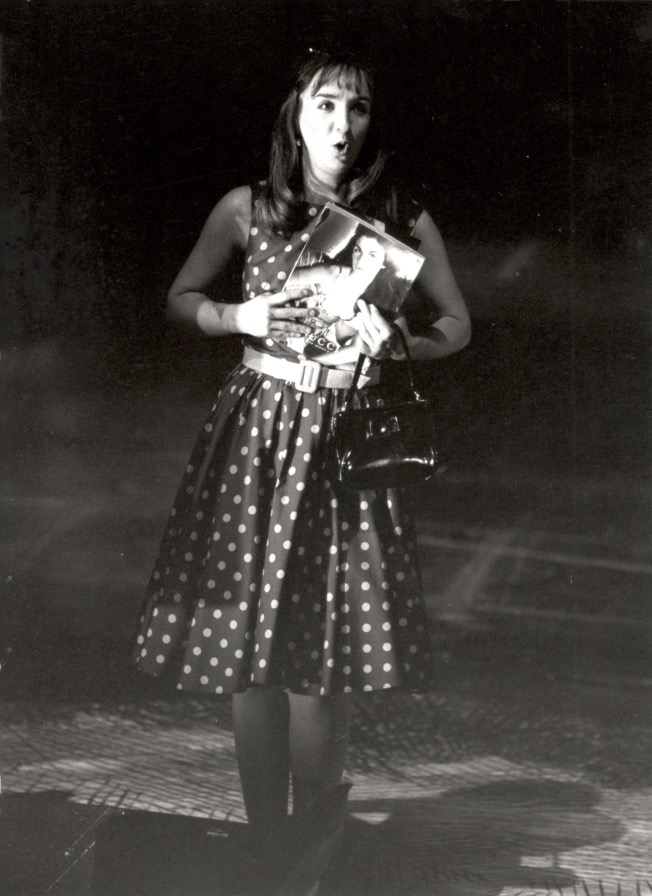
Theatermuseum Düsseldorf / Photo: Eduard Straub
My quest to learn to how to teach
With the help of courses and training, which abounds in these latitudes, I developed more skills and adapted the way of teaching.
I started seeing myself as a silent observer at times, a mirror or a guide to my students.
My Gesangsatelier (Singing Atelier) in Düsseldorf grew along with my experience. Teaching connected me with my ponderings, with my doubts and with the researcher in me.
Everything about it fascinated me and kept me wired to learning.
My aim to untangle the technical controversies among singing teachers led me to investigate the factors that determine high vocal and artistic performance and professional life in flow.
Even if flow is not a state that one can force, I wanted to know more about how to create a stimulus from different vocal functions and from areas of peoples’ professional and personal lives.
However there were still many aspects to discover.
Demystifying and Resignifying
In 1996, during my singing studies in Buenos Aires, I had bin introduced to Eugene Rabine’s Funktionale Stimmpädagogik (Functional Voice Education), where I learned about voice physiology. This allowed me to demystify some ideas such as “support” or “singing into the mask”.
“It has been life changing: from a traditional intuitive singing based on individual experience to a scientifically nurtured intuitive singing.
Although it had been very enriching for me and had allowed me to review my own vocal technique from a physiological point of view, it did not reveal me the secret there the secret to helping students meets the exceeding technical demands of a career in lyrical singing.
I knew there was more to explore. Not because I knew there was more, but because I felt like I was leaving “something” to chance.
Shortly after arriving in Düsseldorf in 1999, I studied under KS. Jeanne Piland who helped me re-define my repertory towards a lyrical soprano (I had been until then singing spinto stuff ). That was a good move for my autonomic nervous system… it felt just right in my mind, in my voice and my body.
Almost simultaneously, I met the singing pedagogue Susanne John, a student of Cornelius Reid.
In her Gesangsstudio, I met for the first time the conscious-unconscious congruence we singers need in order to manage singing technique.
From then, I attended Cornelius Reid courses, every time he visited Germany, getting deep into his “Functional Voice Training“.
While both Rabine and Reid based their practices on vocal physiology, Cornelius Reid’s practical vocal work was, to my understanding, focused precisely on the conscious-unconscious congruence in voice management.
His practices contemplated the paradoxical fact that any vocal technique is a conscious attempt to control a muscular system that, governed by the autonomic nervous system, moves involuntarily.
Magic, basically! As far as vocal technique was concerned, I had managed to answer so many questions for me…
Everything made sense.
Even the disagreements between us singing teachers became understandable.
Towards vocal and artistic freedom
Still, many questions lingered in my head:
On what does the consolidation of vocal technique and artistic identity depend on?
Which transformation processes occur in the learner to get there?
What skills should the student bring and what skills should I bring to do a responsible and effective job?
Is on-stage experience enough?
Eventually, I decided to go into the psycho-pedagogical and neurosciences fields.
In 2010 I was certified as a Classical Singing Pedagogue at the BDG, the German Association of Singing Teachers.
In the years that followed, I occupied myself with the person behind the voice and behind the teacher.
I threw myself into studying psychology and completed certifications in Carl Rogers’ Humanistic Psychology and Neurolinguistic Programming (NLP) at the IAPP (Institute for Applied Psychology and Psychosomatics) in Düsseldorf in 2014.
My greatest discovery was the importance of the role of the person behind the voice and behind the teacher. Until then, the singer and his or her voice, to me, had been nearly dissociated aspects of a person. It was either that, or that I intuitively associated them.
Previously, I had even believed that one’s private life had to be strictly separated from the professional. And that the management of emotions, expectations, time, stress, was something students had to master by themselves. As I had always done.
Theatermuseum Düsseldorf / Photo: Eduard Straub
I don’t think as teachers as psychologists, far from it. But I do know that in the process of learning and transformation there are blockages (emotional, bodily, mental) and that we need to have the tools to unravel information, observe behaviors and offer alternative paths to recover the fluidity of this process, even in ourselves, the teachers.
Two things I discovered: first, that teaching singing lessons is learning from the complexity of each case; and second, this complexity can only be achieved by understanding my students, my coachees, understanding their voices, limiting believes, hidden mindsets and the place I have in their path.
Singers in crisis
I had singers in a vocal crisis often come to my studio. Some of them even required clinical supervision. Cases ranged from vocal fatigue, to reflux and hormonal changes, to nodules on the vocal cords.
Determined to learn more about it, I enrolled at the Hochschule der Künste Bern (Bern Faculty of Arts) in Switzerland to study this subject in depth as a postgraduate course. In 2015 I obtained the Certificate of Advanced Studies in Singer’s Voice Rehabilitation. Since then this area became part of my daily work.
Doubting out loud
During this training in Switzerland, in addition to learning about vocal disorders and vocal therapies for singers, I discovered a highly inspiring practice: collegial intervision or exchange. This prompted me to form and participate in exchange groups with colleagues.
We organized meetings to reflect and exchange on issues and cases that occupy or concern us, to doubt aloud. Together, we ask questions and seek answers.
A deeply enriching experience!
To keep myself up to date,I have maintained memberships in the BDG (German Association of Singing Teachers) and the DGfMM (German Association of Physiology and Medicine for Musicians) for many years.
Both inspire me with their scientific articles in their specialized journals, their courses and their annual congresses.
Although vocal functions are similar in all singers, there are as many ways of handling the voice as there are singers in the world. In numbers: infinite.
Accordingly infinite is my desires to discover them everyday and to help singers and singing teachers to build their own individual basis for vocal and artistic transformation.
Continuing on my path, I am about be to become a Trauma Informed Voice Professional and learning Laurence Heller’s Neuroaffective Relational Model (NARM) and its application in coaching musicians.
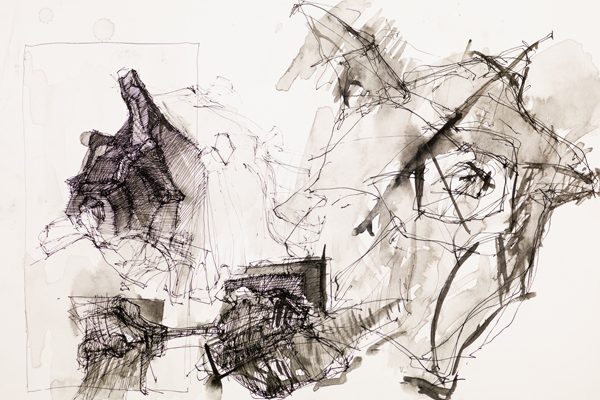
If you teach an instrument or singing...
make your classes a place of vocal and artistic transformation for your students, intertwining the art and science of teaching.
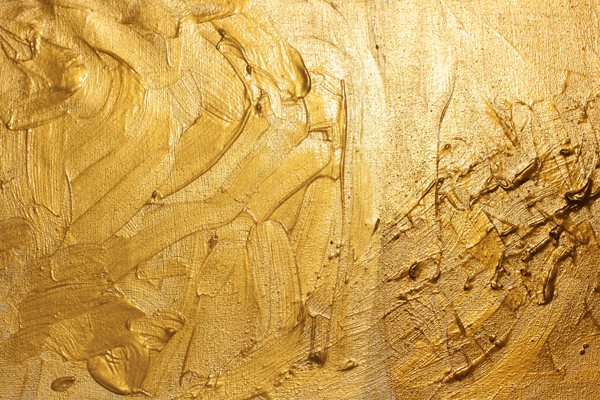
If you suffer a voice disorder...
regenerate your singing function and develop vocal and mental resources for your high artistic performance on stage.

